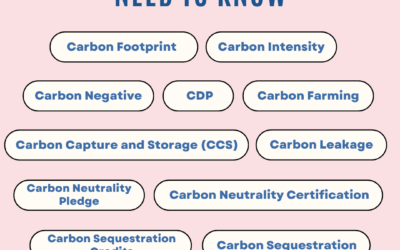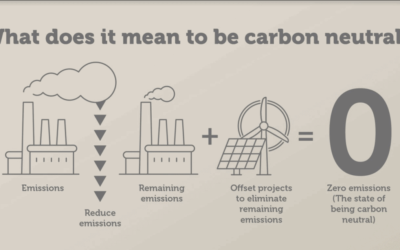Introducing ICOR : Managing Environmental Compliance
How does iCOR work?
iCOR contains a comprehensive database of current UK environmental legislation, all presented in easily understood language and summarised versions. The intelligent compliance obligations register is built in the following steps:
1: Self audit
Using an AI-driven, expert-backed, user-friendly questionnaire
2: Review your register
bespoke list of only applicable UK legislation, reviewed monthly
3: Review conformity issues
A clear view of where an organisation needs to improve their compliance
4: Assign corrective actions
Create actions for your colleagues to efficiently solve non-compliances
5: Evidence, and repeat
View a timeline of all actions and events performed within iCOR
It can be a daunting task to work out what applies to you, where to find it and whether it’s even still in force.
iCOR custom builds your legal register with expert knowledge of UK environmental legislation. It helps to protect against prosecution and improves sustainability strategies, aligned with the requirements of ISO 14001.
Here are some of the reasons that iCOR will give you a better environmental compliance solution:
- Creates environmental compliance obligation registers for UK businesses and manufacturers
- Specifically focuses on ISO14001 clauses that organisations struggle the most with, for example:
- Clause 6.1.3 Compliance Obligations
Organisations are required to have access to, and maintain awareness of environmental legislation. Answering to iCOR’s simple audit builds your organisation’s bespoke compliance register. - Clause 6.1.4 Planning Action
This clause looks at how your organisation’s environmental action plan and its implementation into the Environmental Management System (EMS) and the organisations’ processes. iCOR determines the sufficiency of your controls and write your compliance statements, and tells if not all regulatory requirements are met. - Section 7 Support
This section relates to resource allocation, competency, awareness and communication, all supported via iCOR’s Action Planning function, and mechanisms for team collaboration. Often, solutions for compliance when planning action are additional training and communication strategies to support the EMS. - Clause 9.1.2 Evaluation of compliance
Your answers to iCOR’s simple questionnaire about your organisation’s business activities builds a bespoke register and compliance statements to reflect your processes, which can then be certified by ISO auditors. Suggested 1 day per audit, and repeat every 6-12 months. - Clause 9.1.1 Monitoring, measuring, analysis and evaluation
This clause requires the audit results are accurate and consistent for the ease of reporting well-reported and trends detection/identification. iCOR graphically represents the audit results to easily interpret your current ‘status of compliance’ showing areas of conformity, non-conformity, open and closed actions, etc. iCOR’s timeline function also tracks progress over time. - Clause 10.2 Non-conformity and corrective action
This clause states the organisation must implement procedures for the management of non-conformities and consistent corrective behaviour with preventative decisions – iCOR identifies your compliance status. Any Non-Conformities (NC) are transposed into the action planner, allowing the site manager to assign actions, set deadlines and monitor progress. A resolved issue becomes a compliance statement on your register.
iCOR’s special incident reporting function allows to raise and address environmental concerns outside of the structured audit to ensure that issues are managed pro-actively and evidence is obtained. - Clause 10.3 Continual improvement
An important clause from an ISO14001 perspective – requires continual improvement, best facilitated through internal audits, compliance evaluation, performance assessment, management reviews, etc. To improve, the organisation needs to take action to correct mistakes, innovate, reorganise aspects that don’t work, and continually improve – all of which is supported via iCOR.
- Clause 6.1.3 Compliance Obligations
- Involves all the necessary staff into action
- Updates your team on all the upcoming legislation relevant to your business
We had our 14001 audits recently and I am glad to say we have been put forward for certification renewal. During the audit we looked quiet extensively through the Legal Compliance audits, training records and the ICOR system on legislation and these all stood up very well, and the auditor was very complimentary of the content. So again thank you for your help.”
Blogs and Insights
Whole Life Carbon Assessment
What is the Whole Life Carbon Assessment guidance? With the growth of environmental consciousness over the past decade, prioritizing the environment has become more important. Whole Life Carbon (WLC) emissions are the carbon emissions of an establishment emitted...
Carbon 101 in 2024
Carbon Terms Explained For more such resources, follow Tamma on LinkedIn ↗️ 1. Carbon Credits Explained These are like green tokens earned by individuals or organisations for reducing carbon emissions. You can buy, sell, or trade them as part of a carbon reduction...
Carbon Audit : A Practical Guide for Businesses in 2024
Carbon Audit 101 Today, most of the UK companies and institutions listed on the London Stock Exchange need to publish in-depth reports about the current status of their impact on the environment and plans that intend to achieve the carbon reduction targets. That's...



